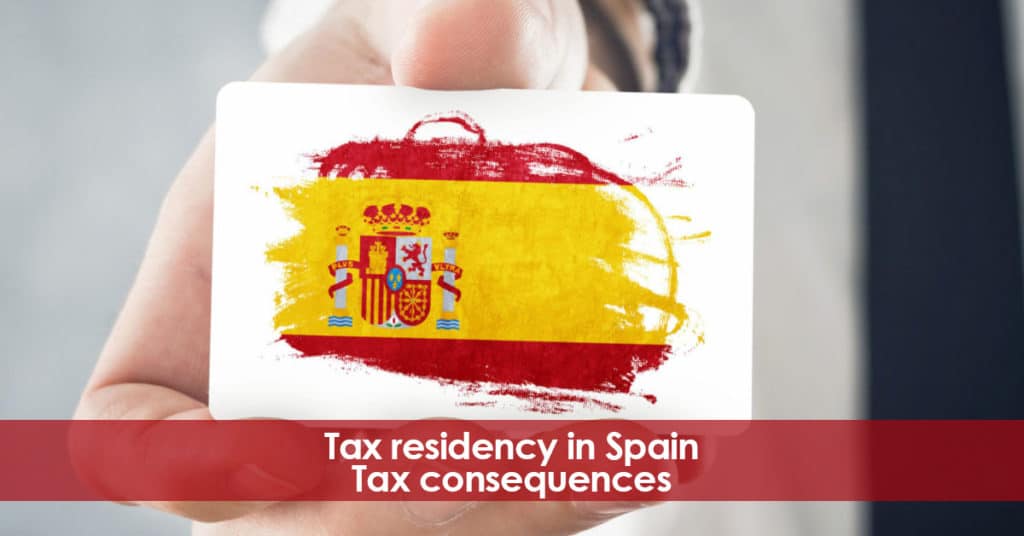Having tax residency in Spain or not, can have very important legal and especially fiscal and tax consequences. Thus, Spanish law understands that the person who is a tax resident in Spain, must pay in Spain for all of his income (salaries, pensions, etc).
Therefore, it is essential that you know if you can be considered a tax resident in Spain. Because, if so, you may be required to pay taxes in Spain for you worldwide income.
When you are considered as tax resident in Spain.
Tax residency is regulated in Law 35/2006, on Personal Income Tax. In its article 9, which considers a tax resident, the person who:
– Remains more than 183 days, during the calendar year, in Spanish territory, or
– Has in Spain their main nucleus of activities or economic interests
Diplomats, members of consular offices, etc have special treatment in this regard.
Calculation of the 183 days.
To see if you are in Spain for more than 183 days, sporadic absences are not taken into account. That is, vacations, business or pleasure trips, etc.
They will only be taken into account, if it is proven that you are a tax resident in another country.
Therefore, if you are not a tax resident in Spain, it is convenient to:
– Have a certificate of tax residence from your country.
– Prove that you were in that country most of the year.
Determination of the centre of interest or activity.
This is the other criterion used to determine tax residency.
If you are not a resident of Spain, you must prove that you have your main centre of interest in another country.
To determine this centre of interest, it is relevant, not only where you have the income, but also the assets, expenses, etc.
Family presumption.
By law, it is presumed (although proof to the contrary is accepted), that one is resident in Spain, when the spouse is not legally separated and the minor children who depend on you, reside in Spain.
Residence Permit vs Tax Residence.
It is possible for an expatriate, or foreigner to have a residence permit in Spain. But this does not mean that they have to have tax residence. Since they are different concepts.
But, it is essential for people who request a residence permit in Spain:
– get advice on the type of residence permit. And if it implies the need to spend more than 183 days a year in Spain.
– get legal advice on the tax implications.
Conclusion
As indicated above, you should be advised on the consequences of having a tax residence in Spain if:
– You have assets in Spain, or an economic activity.
– If you live in Spain most of the year.
– Or if you want to apply for a residence permit.
Double taxation agreements. Thus, it will have to be taken into account, if there is an agreement between Spain and your country. As it can be essential to determine tax residence.
If you want expert advice, contact us.
You can stay informed on our Facebook.
The information provided in this article is not intended to be legal advice, it merely conveys information related to legal issues.
Carlos Baos (Lawyer)
White & Baos.
Tel: +34 966 426 185
E-mail: info@white-baos.com
White & Baos 2021 – All Rights Reserved.
